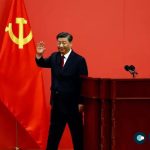
China’s Shock Rate Surge to 50% Triggers Regulatory Probe

China’s financial regulators have launched an investigation into a month-end liquidity crunch that caused short-term money rates to skyrocket, reaching as high as 50%. This unexpected surge has prompted regulators to question institutions about why they borrowed funds at such exceptionally high interest rates. According to sources, the overnight rate for pledged repo, a short-term financing business, hit a record high on October 31, creating significant stress in money markets.
The China Foreign Exchange Trade System (CFETS), a central bank affiliate responsible for operating China’s interbank market, has reached out to institutions that executed trades at the 50% interest rate on Tuesday, requesting detailed explanations for their actions.
One source with direct knowledge of the matter stated, “Anyone who borrowed money at very high rates needs to explain to regulators the decision-making and bidding process.” This move underscores the seriousness of the situation and the need for transparency in understanding the reasons behind the unprecedented borrowing rates.
Traders and analysts have attributed this liquidity stress to an increasing supply of government bonds and the approval of a 1-trillion-yuan ($136.63 billion) sovereign bond issue. These factors have created unusual pressure on the financial system precisely when banks are attempting to balance their books to meet month-end regulatory requirements.
Furthermore, some experts believe that the authorities may have intentionally tightened yuan liquidity to counter the currency’s depreciation against the U.S. dollar in the foreign exchange market. Becky Liu, the head of China macro strategy at Standard Chartered, commented on this possibility.
During the crisis, numerous fund houses, brokerages, and trust firms found themselves scrambling to secure funds in afternoon trading on Tuesday, as major banks appeared hesitant to lend. The demand for cash significantly outstripped the available supply, leading to a substantial increase in short-term interest rates.
In response to the situation, regulators held a meeting with some institutions on Wednesday, advising them “not to be emotional” about the crisis. This has left market participants somewhat nervous but determined to maintain ample liquidity moving forward.
This investigation and the subsequent actions of regulators have drawn significant attention as they seek to ensure stability in China’s financial markets during this challenging period.
($1 = 7.3188 Chinese yuan renminbi)












Comments